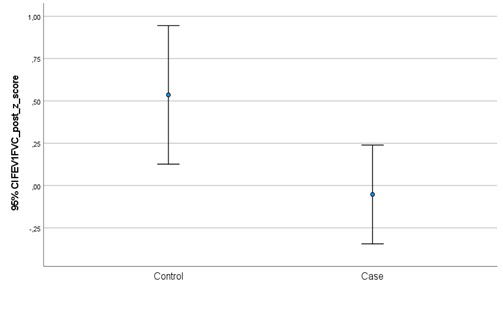Abstract
Background: In adulthood, smoking is the number one cause of chronic obstructive pulmonary disease. Other factors presenting in early life, have been associated with declining lung function as well. Bronchiolitis in early infancy can be a major insult to the developing lung function and perhaps lead to a lower lung function trajectory and early-onset COPD. We evaluated the outcome of lung function in early adulthood after severe bronchiolitis in infancy.
Methods: We prospectively followed 166 otherwise healthy and term children hospitalized for bronchiolitis at under 6-months-of-age. At 11-13-years-of-age a matched control group without a history of bronchiolitis was established. In this current case-control study at mean-age of 18.3 years lung function by spirometry was measured from 72 cases and 28 controls. Flow-volume spirometry results after bronchodilatation were analyzed.
Results: Pre- and post-bronchodilatation FEV1/FVC (forced expiratory volume in first second/forced vital capacity) z-scores were significantly lower in cases compared to controls; at baseline mean z-score 0.1 (SD 1.17) vs -0.09 (1.4), p= 0.001, and at post-bronchodilatation 0.54 (1.06) vs -0.05 (1.22), p = 0.028.

Conclusion: Reduced post-bronchodilatation FEV1/FVC-ratio between groups suggests that severe bronchiolitis in infancy may be associated with an irreversible obstructive lung function pattern characteristic to early non-smoking -COPD.